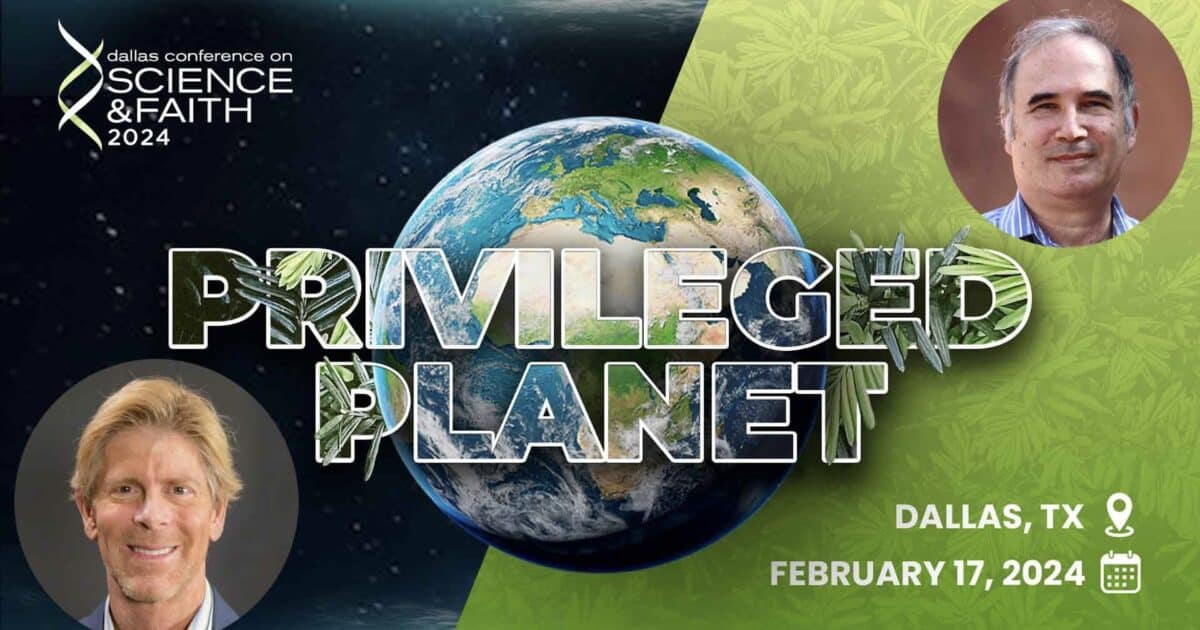
Jay W. Richards, Ph.D., is the Director of the DeVos Center and William E. Simon Senior Research Fellow at the Heritage Foundation, and a Senior Fellow at Discovery Institute.
Richards is author or editor of more than a dozen books, including the New York Times bestsellers Infiltrated (2013) and Indivisible (2012); The Human Advantage; Money, Greed, and God, winner of a 2010 Templeton Enterprise Award; The Hobbit Party with Jonathan Witt; The Privileged Planet with Guillermo Gonzalez, coming out in a second edition in 2024; The Price of Panic: How the Tyranny of Experts Turned a Pandemic Into a Catastrophe with Douglas Axe and William Briggs; and Eat, Fast, Feast. His most recent book, with James Robison, is Fight the Good Fight: How an Alliance of Faith and Reason Can Win the Culture War.
Richards is also executive producer of several documentaries, including The Call of the Entrepreneur, The Birth of Freedom, and Effective Stewardship (Acton Media and Zondervan, 2009). He has been featured in several television-broadcast documentaries, including The Call of the Entrepreneur, The Case for a Creator, The Wonder of Soil, and The Privileged Planet, based on his book, The Privileged Planet, with astronomer Guillermo Gonzalez.
Richards' articles and essays have been published in The Harvard Business Review, Wall Street Journal, Barron's, Washington Post, Forbes, National Review Online, Investor's Business Daily, Washington Times, The Philadelphia Inquirer, The Huffington Post, The Federalist, The American Spectator, The Daily Caller, The Imaginative Conservative and many other publications. His topics range from culture, economics, and public policy to natural science, technology, and the environment. He has appeared on many national radio and TV programs, including Larry King Live; and he has lectured worldwide on a variety of subjects, including to Members of the US Congress.
Richards has a Ph.D., with honors, in philosophy and theology from Princeton Theological Seminary. He also has an M.Div. (Master of Divinity), a Th.M. (Master of Theology), and a B.A. with majors in Political Science and Religion. He lives with his family in the Washington DC Metro area.
Archives


Jay Richards on New Expanded Edition of The Privileged Planet

To Understand the Meaning of a Solar Eclipse

Rarefied Design: The Privileged Planet, 20 Years On

Dallas Conference: Astrobiology Reveals Earth as a Rare Jewel

AI Chatbot Claude Passed My “Sex and Gender” Test. I’m Impressed.
The chatbot "Claude" isn't perfect, but it's miles ahead of the others.
Jay Richards on the Art of Answering Theistic Evolutionists

C. S. Lewis and the Argument from Reason

Jay Richards Dismantles Carl Sagan’s Passive Theist

Jay Richards Talks God, Carl Sagan, and Word Games

Jay Richards: Before Carl Sagan Said It, Science Debunked It

Is ID Bad Theology? No, but the Objection Is

Biden’s National Mask Mandate is Absurd and Despotic

Bingecast: Jay Richards on The Human Advantage

Why Did Americans Agree to a National Lockdown?

New Cosmos Series Preaches the Religion of Materialism

Why Does the Vatican Need Microsoft?
Should the Church really partner with IBM and Microsoft to make pronouncements on tech regulation?When giant corporate actors like IBM and Microsoft promote “transparency and compliance with ethical principles?”, we run the risk that they are helping to craft regulations that hinder future competitors (“regulatory capture”). Rather than partner with them in making statements, the Church should stay clear.

Jay Richards on Eat, Fast, Feast and Human Design

Will Self-Driving Cars Change Moral Decision-Making?
It’s time to separate science fact from science fiction about self-driving carsIrish playwright John Waters warns of a time when we might have to grant moral discretion to computer algorithms, just as Christians now grant to the all-knowing but often inscrutable decrees of God. Not likely.
